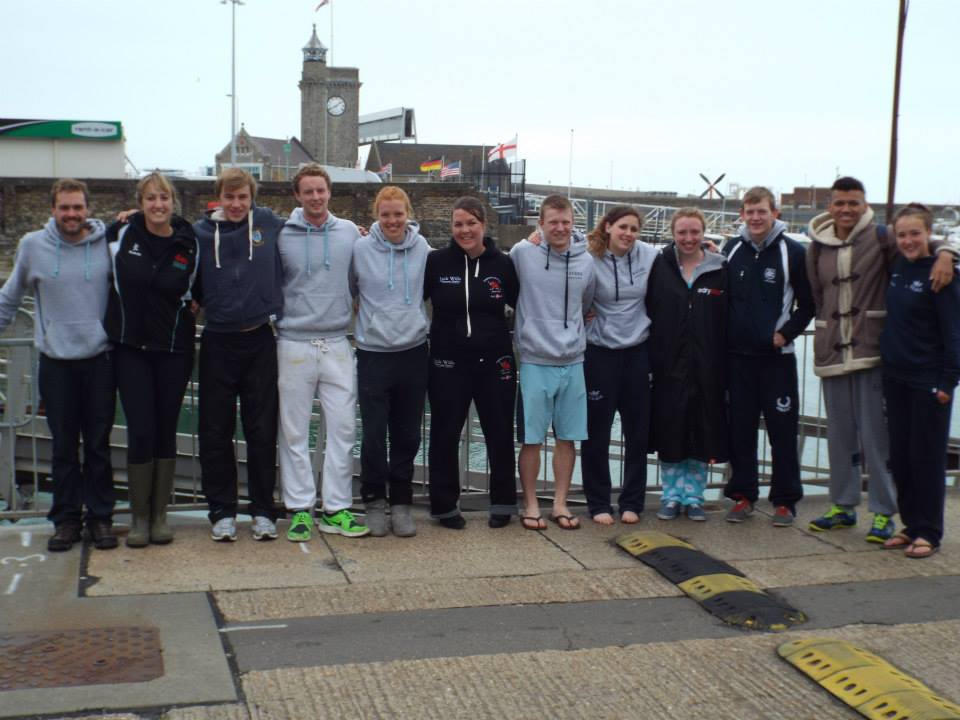Oxford draw to Cambridge in channel relay swim

At 1:43am on the morning of Saturday the 12th of July, 2014, Frederick Faulkner, an Undergraduate at St. Anne’s College, Oxford, stood on Shakespeare Beach in Dover, shook hands with his Cambridge counterpart and dived into the channel to begin Oxford University’s channel relay crossing attempt against Cambridge. The rules were: 3 boys and 3 girls from each university swim for an hour each in a fixed order, boy girl boy girl, and accompanied by a pilot boat until they stand upright out of the water in France- the first team to do so wins.
The Oxford team consisted of 5 pool swimmers and 1 pentathlete, and quite minimal open water experience. The race occurs once every 2 years and has been historically very dramatic so this year, with 12 hours noticed, we gathered in Dover, not quite sure what to expect.
As we swum away from England, the teams remained level for the first two hours with solid swims by Frederick and Naomi Vides, guided only by lights on the boat in the pitch black 16 degree sea. Alex Fraser, was 3rd for Oxford, and although plagued with motion sickness he kept going for his full hour, but Cambridge opened up a bit of a lead, only to be overtaken by the combined solid swims of Adenais Vachon, Anthony O’Driscoll and Emilia Marsden in the next 3 hours, despite Anthony’s near hypothermic reaction to the cold and Emilia’s constant sea sickness on the boat and in the water.
Almost 8am and well over halfway across the channel, we started round 2 with the Cambridge boat still in sight. Although swimming in the daylight was more pleasant, it also meant that from the boat, we could see all the jellyfish we were swimming around or sometimes unfortunately into. Frederick and Naomi put it some gutsy swims to open up a 900 yard lead on Cambridge who were at the time directly behind. Next was Alex again, and he knew how close it was going to be. Suffering even worse than last time from motion sickness, he did not stop swimming once, but Cambridge still managed to overtake. As the tide swept round to carry us in the opposite direction, we knew it would come down to minutes and whether or not Adenais would get a chance to try to catch the next Cambridge swimmer.
However, Cambridge’s final swimmer had an incredible swim and made it to a beach on the French coast just as his hour was up, meaning their team finished in exactly 9 hours. We dragged exhausted Alex out of the water, and only 2 minutes later Adenais landed on some French rocks, meaning we finished in an admirable time of 9 hours 2 minutes.
We later found out that because of the randomness introduced by the varying French coastline, unpredictable tides and weather, and different routes chosen by our two pilots, that if the two teams finish within 5 minutes of each other, the race is declared a draw.
So we all headed back by boat to Dover as winners and arrived home, the ground still swaying beneath our feet like the boat on the wavy channel. Congratulation to both teams, for such an exciting race and for successfully crossing the channel!
